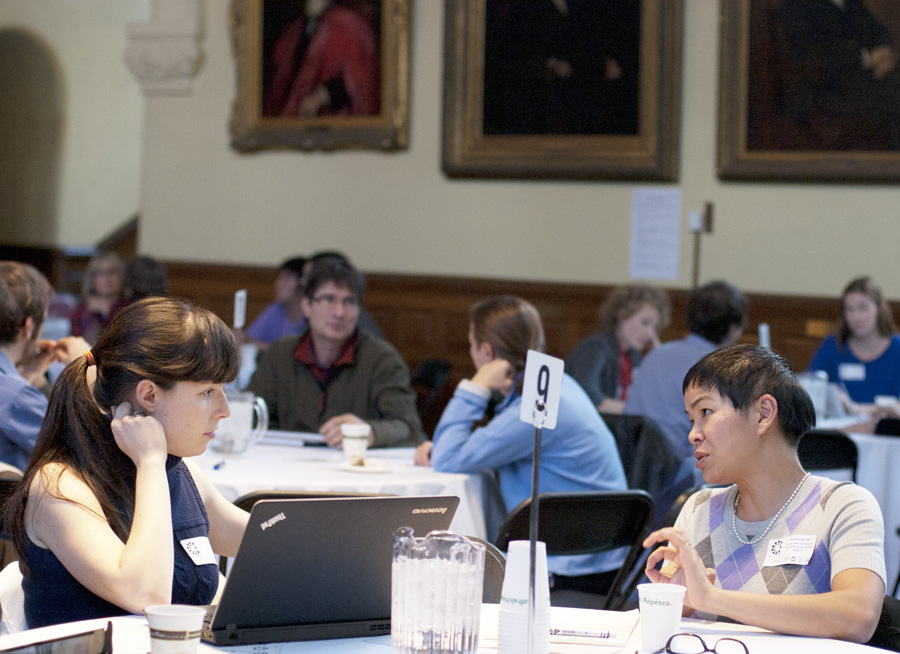Last Wednesday, students, advisors, and other members of the McGill community gathered in Redpath Hall for the third semi-annual Consultation Fair. The fair provided a forum for participants to discuss and voice concerns about advising and graduate supervision at McGill.
The fair was a joint effort by the McGill administration, the Macdonald Campus Students’ Society, and the undergraduate, graduate, and continuing education student associations. According to Haley Dinel, vice-president university affairs for the Students’ Society of McGill University, the fair’s theme was chosen in response to a growing concern that not all students are receiving the advising they need.
“The topic came out of some of the [Consultation Fair] conversations … last year,” Dinel said. “It was clearly a problem that a lot of undergrad students were having, [as well as] grad students, continuing education, and Mac campus [students]. The university … is hoping to change its advising mechanisms, and we wanted to give people a chance to talk about it.”
This past summer, in an attempt to take account of the existing academic advising framework, McGill took a census of all the academic advisors who are active at the university, and established the Academic Advising and Mentoring Advisory Board. The Board was mandated to find ways to improve the quality of student advising at McGill, and held its first meeting on Oct. 10.
Wednesday’s Consultation Fair provided 19 different table discussions that participants could join. Consultation sessions were divided up into three 25-minute discussions, allowing participants to engage in multiple conversations.
Topics of discussion included peer advising, roles, and expectations for graduate students, access to advising, career advising in continuing studies, and online resources and communications.
At some of the tables, students co-facilitated the discussions with a McGill staff member or advisor. Several advisors expressed their excitement at the opportunity to discuss advising directly with students, and to connect students to advising services.

“One of the reasons I’m here, is to chat about ways to make academic advising information easier to find,” Mark Ordonselli, McGill web communications manager, said.
Ordonselli facilitated the table dedicated to web resources, where a common theme was the need for more accessible basic web information about registration and advising.
A new, online resource that McGill is piloting is the “ask an advisor” button, which will enable students to email short questions directly to an advisor. The contacted advisor will either answer the question or direct the student to someone who can help them.
Another common concern expressed at the tables was the difficulty of getting students—especially at-risk students—to take advantage of the advising and counselling services available at McGill.
“In residences this year … the floor fellows were trained on how to spot students who were running into trouble in their first weeks,” Paul Olioff, academic advisor for the faculty of science, said.
Olioff also stressed the importance of having people check up on new students to make that sure they aren’t struggling.
Conversations at the tables discussing graduate supervision exposed a common desire for clearer expectations to be laid out for both supervisors and graduate student researchers, particularly in the lab disciplines.
At the end of the fair, a facilitator from each table shared one of the group’s key ideas with the rest of the room. Suggestions included an online map or timeline for advising, a brochure with information about advising, pre-arrival web chat with international students, and more clearly defined responsibilities for graduate supervisors.
“It was a great discussion,” Shannon Ray, co-vice-president external for the education undergraduate society, said. “Each session brought something new or innovative to make it different, but very applicable.”
Throughout the next six months, the McGill administration will review notes from the Consultation Fair, and will attempt to follow up on some of the suggestions. The notes from the sessions will be available online.









